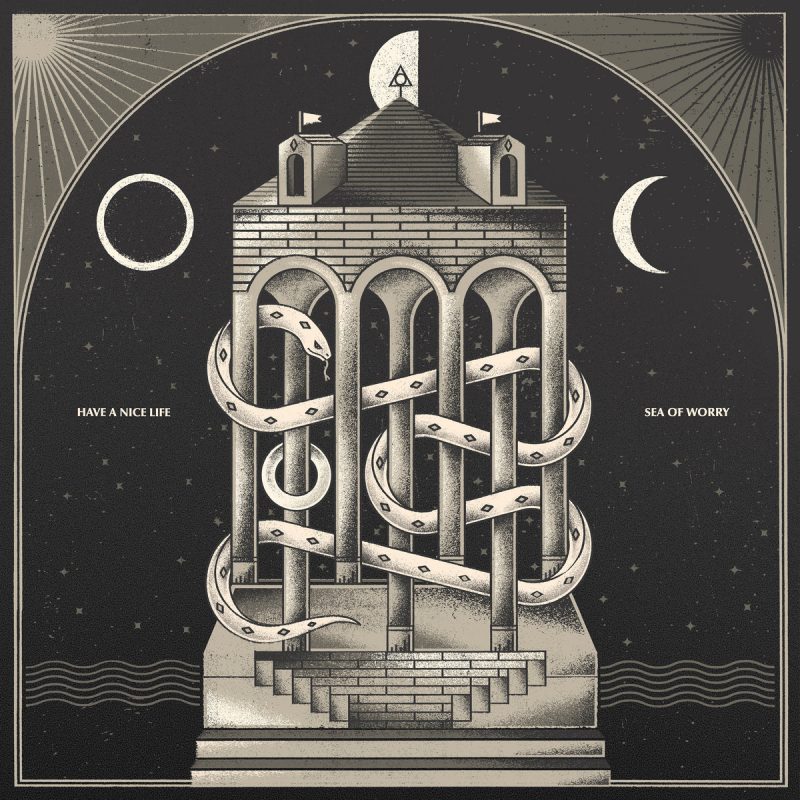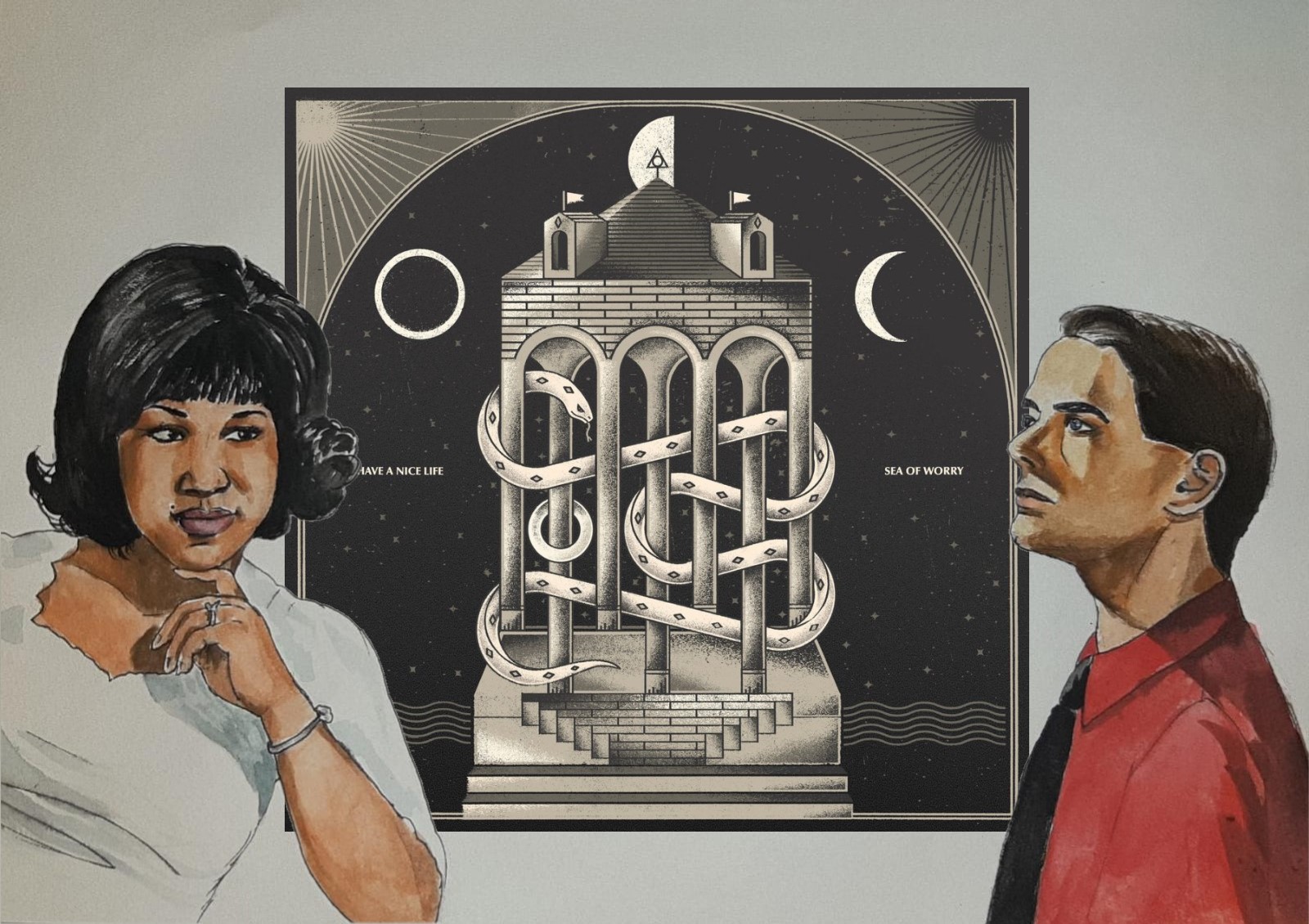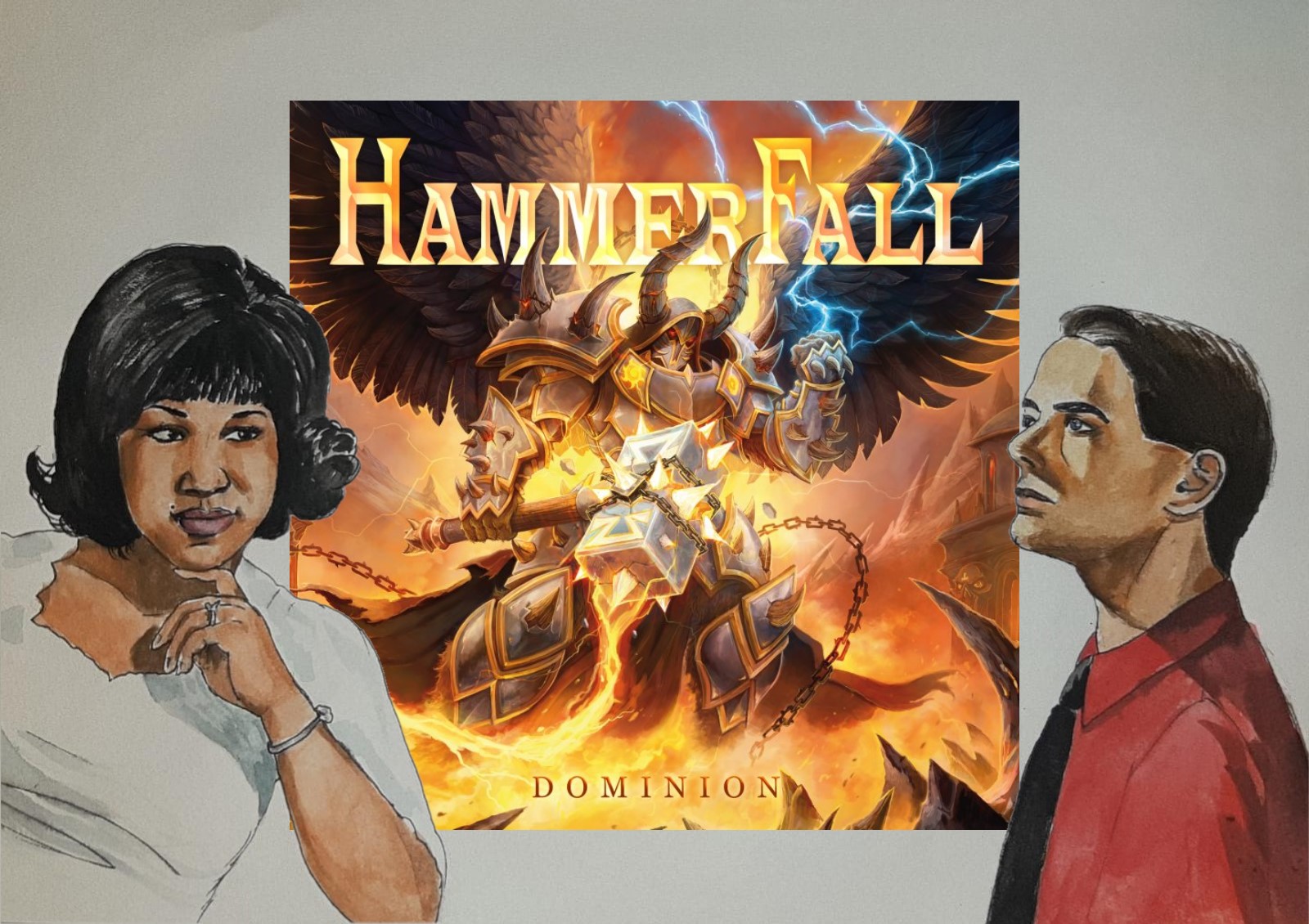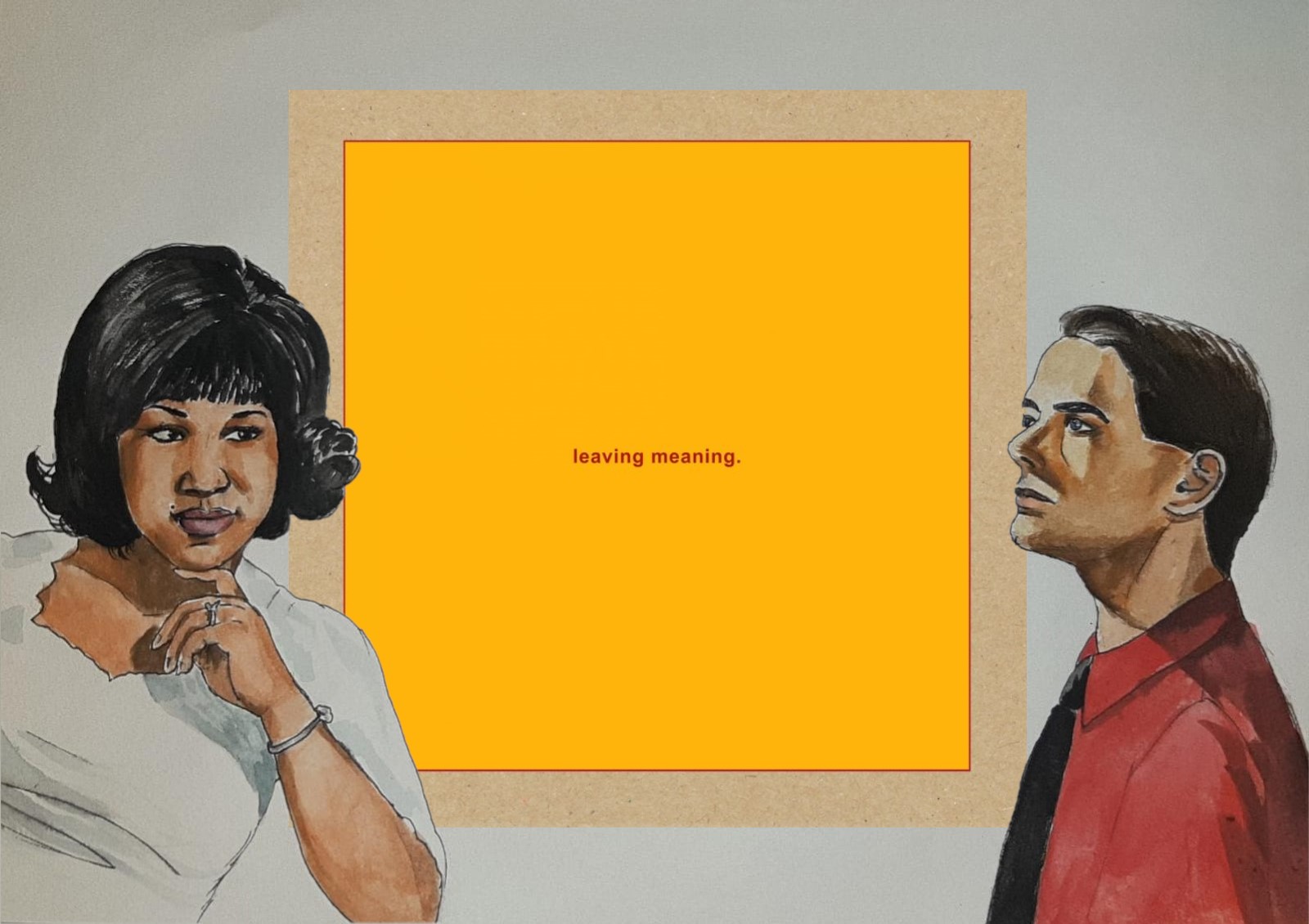
Have a Nice Life – Sea of Worry (The Flenser, 2019)
Gothic Rock / Post-Punk | USA
A little over a decade ago, Have a Nice Life debuted with what is probably the most universally acclaimed, significant and innovative Post-Punk record in recent memory. Without a doubt, Deathconsciousness (Enemies List Home Recordings, 2008) was a definitive moment not just for the band themselves, but for the genre as a whole, a breath of fresh air after the early-aughts Post-Punk revival seemed to run out of ideas. However, their latest release sees them by and large discarding their characteristic genre-blending sound, and opting for more of a re-hashing of familiar Post-Punk forms.
Dracula’s Death
One of the first things to notice with Sea of Worry (The Flenser, 2019) is a stylistic shift from the lo-fi, drone-y, claustrophobic production that characterised both of Have a Nice Life’s past records, towards a distinctly cleaner and clearer sound. The opening track is more reminiscent of classic Post-Punk than anything the band has released to date. In fact, the only defining characteristic of their sound that seems to have carried over onto Sea of Worry is the ‘buried-in-the-background’ approach to vocal mixing. Have a Nice Life have always been ones to directly approach very difficult and uncomfortable subject matters in their lyricism, and the song’s lyrical theme of climate anxiety is probably its most contemporary and incisive aspect. The song’s chorus expresses in no uncertain terms that disaster awaits, and that those who have the power to do the most damage – certainly will.
The opening guitar tones of „Dracula Bells“ feel like an almost unmistakable callback to the 2000’s Post-Punk Revival bands – in fact, the first half of the song (with a few tweaks to the production) feels like it could’ve made it into Interpol’s Turn on the Bright Lights (Matador, 2002). Lyrically, the song introduces another statement which is to be explored later on, on the album’s B-side: if there’s a God, He’s not how we thought. After a tight beginning, the song gets more and more dissonant, with distant, shouted vocals and what sounds like faint organ stabs. Unfortunately, despite the dynamic start, as it goes on, the song starts to suffer for its length and general lack of interesting sonic variety.
Lo-Fi no more
„Science Beat“ further mellows out the album’s atmosphere with a distant, synth-heavy, Post-Punk soundscape. It feels spacey and expansive throughout, but once again, sadly, not much else happens until the end of the track’s runtime, where it fizzles out in kind of an unsatisfying way. We then transition into „Trespassers W“, a song which originally appeared on Voids (Music Ruins Lives, 2009), a collection of demos following the band’s debut. The tone of the track is strikingly different than it was ten years ago – like Sea of Worry so far, it’s decidedly cleaner and brighter. The Voids’ version of the song is very much emblematic of the era within the band’s career it came out in, with its muddy percussion and gloomy, lo-fi production. However, in it’s new, pristine glory, the song seems to have lost a part of its edge and uniqueness, again feeling familiar to that same early 2000’s Post-Punk Revival wave the band seemed to be leaps and bounds ahead of. The last leg of the track builds up a bit of heaviness, but remains consistently bright, with almost Surf Rock-esque guitar tones. The lyrics have undergone some minor tweaks to better fit the album’s religious through-line (the original opening line I’ve been doing a lot of bad things without you being changed into I’ve been doing a lot of damned things without you).
According to Dan Barrett, both sides of the album have a “short story quality” to them, each acting as their own narrative whole. What’s immediately obvious is the tonal difference between the two sides – „Everything we Forget“ introduces a strikingly darker, colder, almost foreboding ambient.
„Lords of Tresserhorn“ is the first track on the album that hearkens back to the characteristic heaviness we’ve come to expect from Have a Nice Life. The most interesting aspect of the song are the lyrics, detailing “the flip side of happiness, which is the dawning awareness that what gives you joy is not owed to you, and could be taken away at any time.“ The lyrics ,,I am mortgaged to/The irrational thought/That we are always […]/We are always on top“ poignantly express the sentiment many people recovering from darker times can relate to: the need to believe that the peace one had to struggle to achieve will be permanent, because the thought of losing one’s hard-earned joy is too much to bear. However, the song also suffers from the same issue some of the previous songs do: there doesn’t seem to be much in the way of progression to it.
Hottest for last
As the preacher from the recording that opens „Destinos“ says, the band seems to have saved “the hottest for last”. The issue at hand is the theological problem of Hell – the incongruity of the existence of Hell with the belief in a completely benevolent God. The preacher asserts that, rather than questioning if there are grounds for a benevolent God to create a Hell and send someone to it, one should question whether there are grounds for a perfect God to forgive a “wicked and rebellious sinner”. He continues to argue that this incongruity stems from a humanist (secular) interpretation of God and the world. The speech is slowly engulfed by the song’s approaching instrumentation and distant, droning vocals. The mellow instrumentation led by an acoustic guitar and piano slowly builds up to a heavy wave of noise, while maintaining a melancholic tone. „Destinos’“ atmosphere is heavy and potent, tastefully incorporating Drone and Post-Rock elements to create a satisfying wall of sound, that gradually fades and softens as the track progresses. It is a powerful closing statement, beautiful and gripping for its entire thirteen-minute runtime.
It’s easy to dismiss criticisms of Sea of Worry’s stylistic shift as a resistance to change and evolution in Have a Nice Life’s sound. However, it seems a bit disheartening to hear a band that was for so long the cutting edge of Post-Punk in a context where their sound is less of an evolution and more of a series of callbacks to preexisting genre conventions. Even if one would want to evaluate Sea of Worry ‘in a vacuum’, and despite its insightful and interesting lyricism often acting as a saving grace, the glaring issue of the lack of progression and interesting musical statements in a lot of the songs persists.
Favourite tracks: Destinos, Sea of Worry
Least favourite tracks: Dracula Bells, Science Beat
5.4/10






